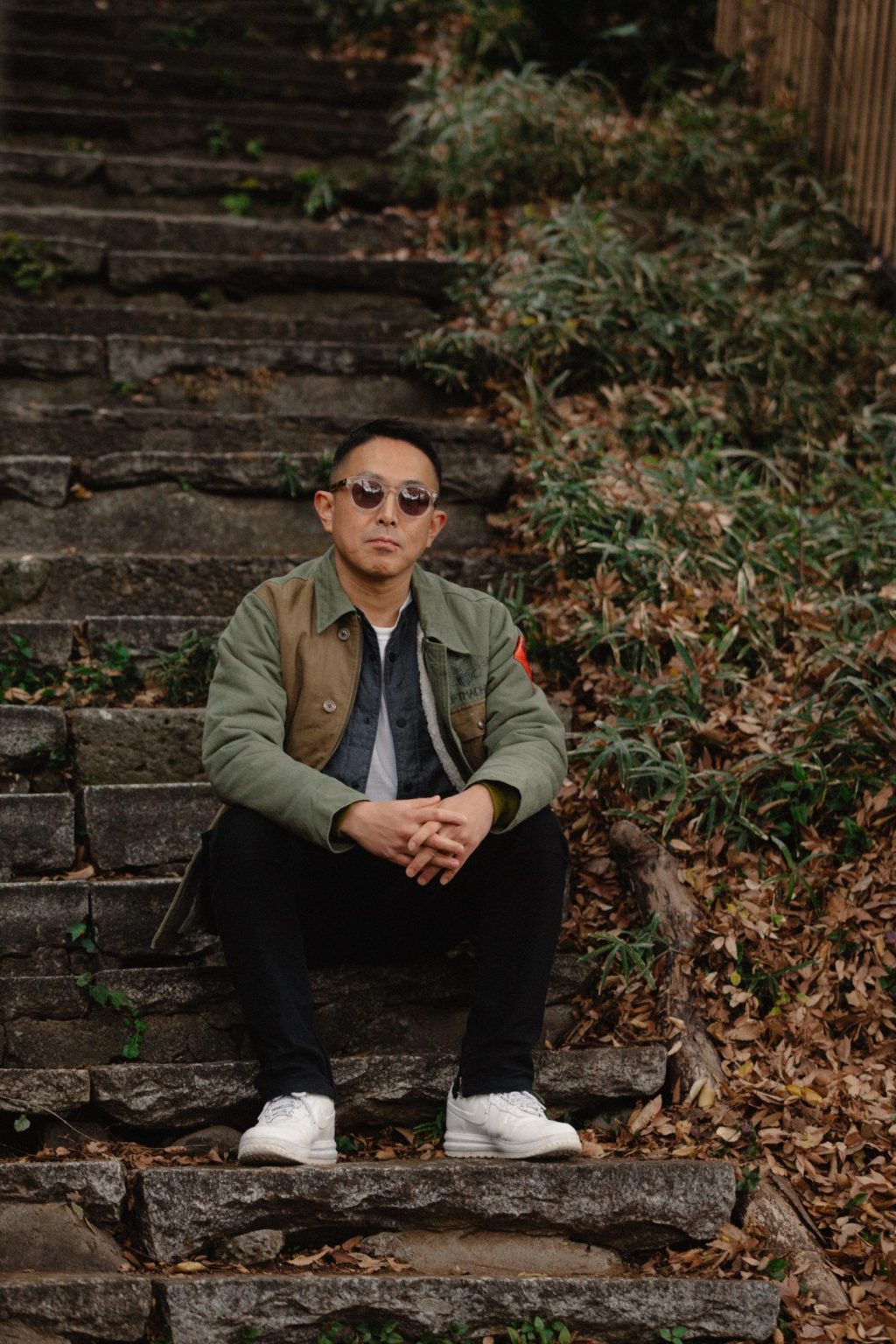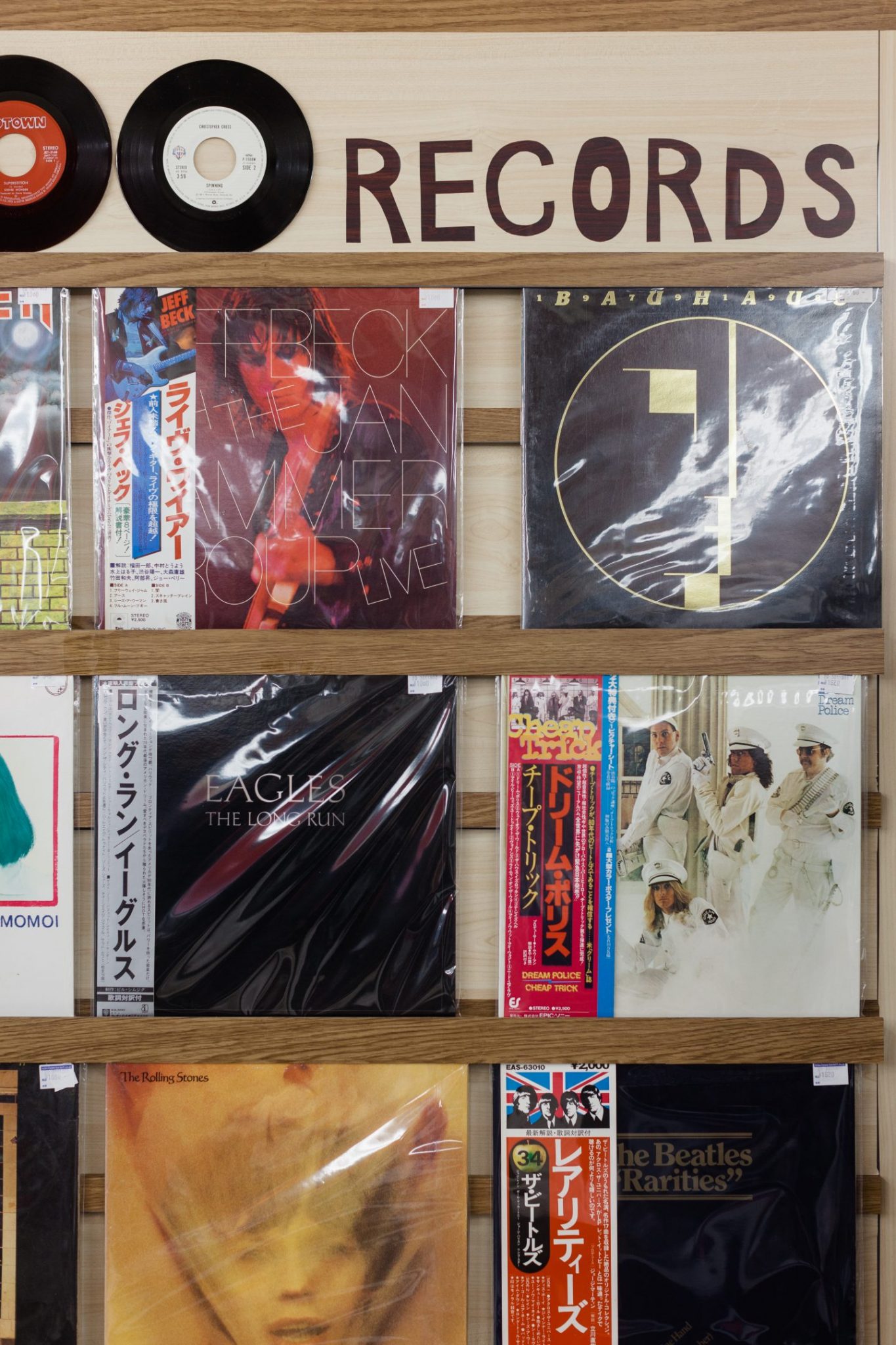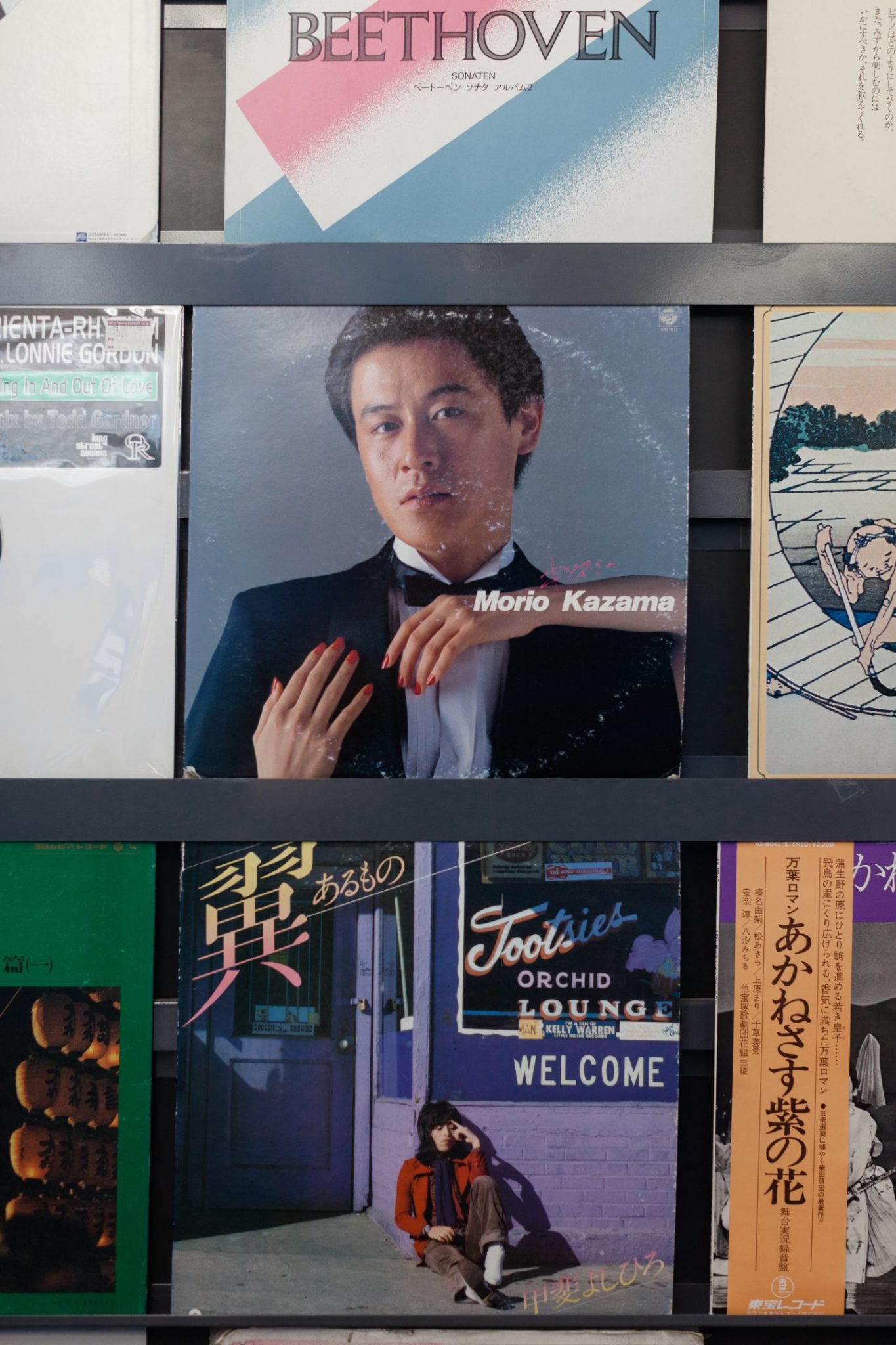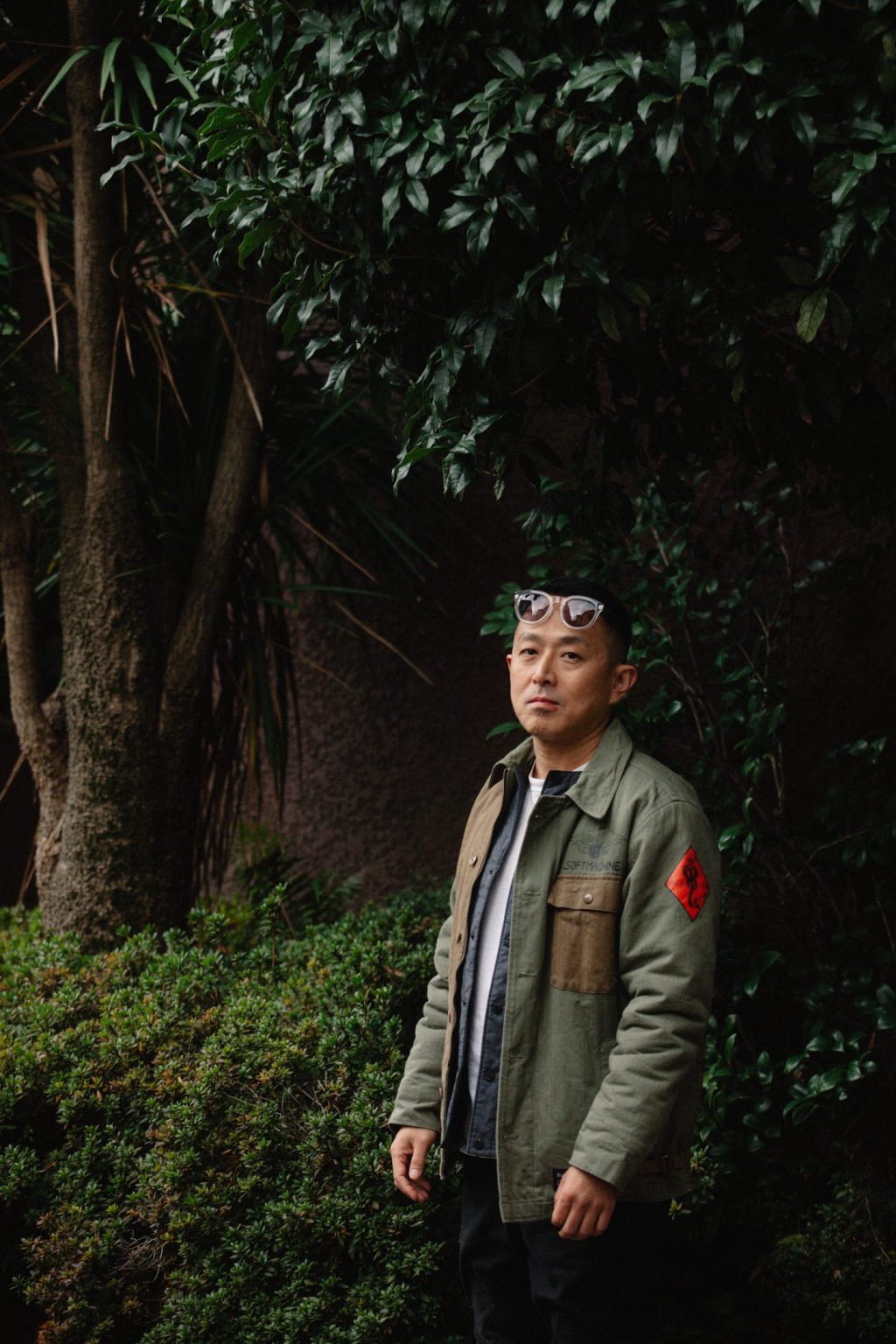In the world of Bandcamp, Kickstarter, YouTube, and other streaming sites, along with the continued resurgence of vinyl, Qrates seems like a natural progression. We’re at the beginning of 2019 and CDs are…what are CDs? Cassettes have been resurrected in past years, partly due to them being a budget friendly physical release option for artists. In this climate, vinyl has experienced a steady increase in sales while it maintains an elite status among physical formats, in part due to its cost of manufacturing. Enter Qrates, a crowdfunding platform exclusively focused on vinyl. By working to close the gap between those who ordinarily would not be able to afford the cost to make vinyl and their vinyl hungry fans, Qrates has found a niche it hopes to call home.
I apparently first met Yong-bo in 2013 at Sonar Tokyo, but due to circumstances on the evening, that meeting is something mutual friends are left to recall and retell for me. The first meeting that I remember took place around noon on December 13th in Shibuya when I sat down at a table in front of a clean-cut man who greeted me with a handshake. He introduced himself as Yong-bo in a deep, slightly rough voice accompanied by a warm smile. After looking through a lunch menu, Yong-bo and I began getting to know each other.
A 4th generation Korean living in Japan, Yong-bo is married to a Japanese woman from his hometown of Nagoya with whom he has a 4-year-old daughter. He wakes up at 6am everyday to get his daughter ready for the day and then takes her to preschool. I got the feeling that he eats at that restaurant often because he requested the same thing he had the day before, which didn’t seem to be on the menu. Despite having a busy schedule with work and family responsibilities, he still makes it out to listen to music at his favorite venues in Tokyo from time to time. After lunch, we moved to a small hole-in-the-wall a couple of blocks away on a side street of an area in Shibuya near the Qrates offices.

So, how would you describe Qrates in your own words?
I would say that Qrates is a modern solution for the vinyl business on both the manufacturing and artist/label end. We initially created Qrates as a crowdfunding service for vinyl and quickly it became known in certain genre and artist circles because we were the first such service. Crowdfunding is still one of the key features of Qrates. However, over the past four years, we’ve developed many offerings that go far beyond that of a crowdfunding platform. Services such as distribution to vinyl retailers around the world, an advanced pre-order system for artists and labels independent of crowdfunding projects and now, our new physical storage service for vinyl where artists and labels can keep the vinyl they’ve manufactured with us at our storage facility to be shipped directly to their customers as needed.
What type of person would naturally gravitate towards Qrates?
I think artists who have already built a moderate fan base are the first who should be interested in Qrates. These artists will immediately understand the importance of our service as another avenue for them to create value from the work they have done and will do because the direct-to-fan model is one of the cornerstones of an independent artist’s income stream. Next in line to appreciate Qrates would be fans of collectible vinyl, our marketplace is very unique compared to any other you will find.


Qrates has been around for almost five years, why do you think it’s had so much interest?
As I mentioned before, up until this point, the vinyl business was based on a very old model that hasn’t been challenged for the past few decades. We’ve just done our best to update things for the current era in a way that makes the manufacturing and selling of vinyl borderless and friendly to those who aren’t a big record label or don’t have a lot of money to put down on a project. I just think we are the first service to challenge this issue and push things to a clear concrete shape that many indie artists and labels were waiting for.
For those unfamiliar, what is the value of vinyl versus digital music? Why is it worth owning vinyl despite its seeming inconvenience in comparison to digital music?
I personally believe that music pressed to vinyl is art. Yes, music is an art and the images that appear on the jackets are art, but I mean, that the entire experience of vinyl–the look, feel and sound–makes vinyl a unique art form. It’s an art form concerned with legacy, a romantic notion of connections, past, present and future. After searching, a collector finds a record that they love, and others in the future may find the same bliss in that same record. This is just as important as experiencing the moments of catharsis contained in the recorded material imprinted on that piece of polyvinyl chloride.
It goes for the artist as well, that idea of legacy. And still, no other medium in mass production matches the durability and lifespan of vinyl records. I think that’s exactly what music fans want to buy and collect from an artist they love. Gathering favorite tracks to a playlist on Spotify is convenient and, maybe for some, a necessity for daily life, but it doesn’t satisfy that notion of connection, that desire to be a part of the stream of history. I think collecting art and supporting artists is a universal and timeless desire born out of a need for that connection.
“When I woke up the next morning my family had left, along with my passport. My uncle told me that I no longer had a choice and that I would attend high school in Seoul. ”
So Yong-bo, where did your interest in music begin?
In high school, I really wasn’t into studying or school, but I was into Punk Rock. I connected with bands like Black Flag, Bad Brains, The Dead Kennedys and The Ramones. I just really loved that cultural movement—I even played in a punk band. I quit school and completely indulged in an adolescent punk lifestyle. As some may be able to guess, this did not sit well with my housewife mother or my self-employed father, both of whom upheld very traditional Korean values. One day, they asked me If I’d like to come along for a family trip to Seoul and I agreed. In the beginning it was a normal and enjoyable family trip. The day before we were scheduled to return to Japan, they asked me if I would like to stay in Korea with my uncle and attend high school. I, of course, refused and stormed out, deciding to go and get drunk.
When I woke up the next morning my family had left, along with my passport. My uncle told me that I no longer had a choice and that I would attend high school in Seoul. I was so angry, even trying a couple of fruitless escape attempts by ship back to japan. I now understand the concern my family had for me and I’m thankful for the efforts they focused on me and the experiences that came out of them. After all, it was in Seoul nightclubs frequented by U.S. military that I first experienced hip-hop and the culture that surrounds it. Groups like Public Enemy, RUN DMC, Boogie Down Productions, Eric B. & Rakim and EPMD. Just as with punk rock, I felt an instant connection and love for the movement. I enjoy many genres of music, but these early experiences largely define my affection for music.

That’s a pretty crazy story, I can’t imagine how I’d cope. Did you speak Korean before all this?
Not at all (laughs). It was an intensely difficult time for me. Just as in Japan, where I grew up as somewhat of an outsider due to being Korean, I was again an outsider only this time in my ancestral home. In both cases, music was my refuge. That experience gave me great perspective.
You mentioned at lunch that you attended college, so your parents’ plan played out as they had hoped to some degree? What role did music play during your college years?
I wasn’t involved in music during college in the same ways as in my adolescence. Of course, I listened to and collected music, but I was quite preoccupied with my studies, which were primarily focused on law.
What did you do after college?
In Japan, after college graduation, it’s normal for students to put on a salaryman uniform (suit and tie) and go through a gauntlet of recruiting interviews to try and enter a company. I always felt that this was an uptight ritual without a future of interest for me. My answer was to disengage and float about, working whatever job I could get and enjoying life. I worked in all kinds of positions, from doing deliveries to cleaning, while thoroughly indulging on my days off. This didn’t last long, though. I eventually grew restless and decided to move to America to study English.


So you moved in and out of societal norms during this time. I can somehow relate. How did you find yourself as a business owner?
Well, my father operated a restaurant and later, an arcade during the first wave of video games when I was a kid—I actually had a Dig Dug cabinet in my room when I was a kid, I think this had an obvious influence on me.
You mean in the way you weren’t interested in school?
Well, that too (laughs), but I guess the business side of things started for me during my time in America. The Internet was really starting to become ubiquitous and with it certain areas of Japanese culture in the West. I began selling pro-models from Japan and did pretty well with it until I lost interest with it, in part due to the increase in competition.
My next big experience in business came right after I moved back to Japan. At that time my brother was starting a restaurant and urged me to join him. It was really hard but fulfilling work, in part due to the fact that we did really well. We were able to open 3 locations within 2 years and they all did really well. That was a great experience that allowed me to put away a substantial amount of savings.
Where did Qrates come from?
The idea for Qrates came to me when I was in a business meeting thinking about something else.
What was this business meeting about?
(Laughs) I don’t actually remember. I do remember being excited about the idea I had though.
Did you start working on that idea right way?
No, there was a lot of preparation that I needed to do before I could start.
What kind of preparation?
I needed money, so the process of putting together proposals and finding people to pitch the idea to took time. I think I pitched the idea more than 50 times before I was able to find somebody interested in backing the business. After the first person agreed, it became easier and more followed soon after. It took about two years before we were actually ready to get started.

So the official founding date of Qrates is 2015. Let’s say Qrates has been in business for 4 years, how are things progressing?
Our users have steadily increased since we made our platform public. We’re really lucky to have been embraced by internet genres such as Lo-Fi Hip Hop and Vaporwave as well as by artists such as Vulfpeck. We see a lot of room for growth through refining and expanding our services as well as gaining by expanding our user base to different regions and different genre pockets.
What are some challenges you’re facing with Qrates right now?
Our manufacturing partner is in Europe and there are situations in which we can’t offer the shipping rates we would like to. We have several ideas we’re working on to solve this. One idea we’re about to roll out is a new feature called Qrates Storage. It’s a service where for a small fee customers can store the vinyl they’ve manufactured at our warehouse. They can then continue to sell from our store and we will handle shipping for them or they can ship to retailers as needed.
Is there anything else you guys have in the works that you can share?
It may be a bit early to talk about, but we’re slowly making steps towards owning and operating our own pressing plant here in Japan. I can’t share any details beyond that but this is something we’re very excited about!
“No other medium in mass production matches the durability and lifespan of vinyl records. I think that’s exactly what music fans want to buy and collect from an artist they love.”


























